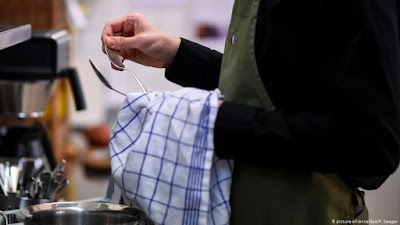A report
into sexual abuse against children by British politicians says that Westminster
"actively shielded" suspects from investigation. One of the alleged
perpetrators was the private secretary to Margaret Thatcher.
DW, 25 February 2020
British politicians turned a blind eye to the sexual abuse of children and actively covered up allegations over decades, an independent inquiry found on Tuesday.
DW, 25 February 2020
 |
| Politicians Cyril Smith and David Steel in 1981 (picture-alliance/PA Wire) |
British politicians turned a blind eye to the sexual abuse of children and actively covered up allegations over decades, an independent inquiry found on Tuesday.
The inquiry
did not find evidence of an organized pedophile network. The inquiry examined
the years between the 1960s and the 1990s.
The report
found there had been "significant failures by Westminster institutions in
their responses to allegations of child sexual abuse."
"This
included failure to recognize it, turning a blind eye to it, actively shielding
and protecting child sexual abusers and covering up allegations," the
report's summary said.
Former
Liberal leader David Steel, one of the most influential Liberal politicians of
the twentieth century, announced his resignation from the centrist Liberal
Democrat party and the House of Lords later on Tuesday. Steel was condemned in
the report for failing to act despite knowing about cases of child sexual
abuse.
Politicians 'protected from prosecution'
 |
| Margaret Thatcher was among those who turned a blind eye to allegations of child sexual abuse |
Politicians 'protected from prosecution'
The 173-page
report named several members of parliament, including Peter Morrison and Cyril
Smith as being "known or rumored to be active in their sexual interest in
children and were protected from prosecution in a number of ways."
Morrison
was the private secretary to Margaret Thatcher, the British prime minister in
the 1980s.
The report
highlighted that Thatcher was aware of Morrison having a "penchant for
small boys" but did nothing about it. Similarly, David Steel was aware
that Cyril Smith was a serial sex offender but did nothing about it, later
recommending him for a knighthood.
The inquiry
also found that the police knew enough to prosecute Smith in the 1970s, but
were thwarted by senior policemen who thought such a move would be "too
political."
Inquiry
continues
The
Independent Inquiry into Child Sexual Abuse (IICSA) was set up in 2017 and is
expected to take five years to be completed.
The inquiry
is one of the largest and most expensive ever undertaken in Britain. The
Westminster investigation is one of several investigations underway.
“We hope this report and its recommendations
will lead political institutions to prioritize the needs and safety of
vulnerable children," said Chair Alexis Jay






















